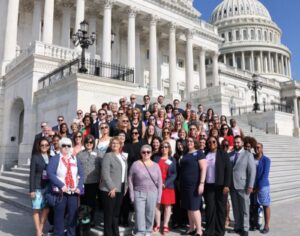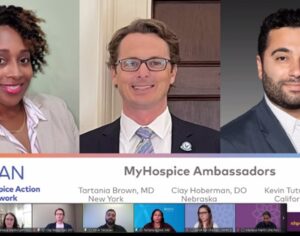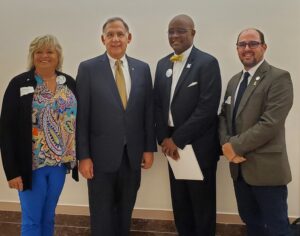The Choice to Keep Running: Advocating with Grief (1 of 2)
Trey Gibson describes himself as an advocate for “anything that helps kids.” Moreover, he advocates for “all the needs of kids who are going through a very tough disease.”
Sadly, it was through the loss of their 10-year-old daughter, Emilie, that the Gibson family became intimately aware of the needs of children and families facing a cancer diagnosis.
When asked what his daughter Emilie was like, Trey says, “Summarizing who Emilie was is hard, as there was so much to her personality and character.” She loved the Hulk as well as unicorns. She had a strategic mind paired with a competitive spirit.
“She knew that she was my gift, as she was born on Father’s Day weekend,” Trey reminisces.
In September 2016, Emilie was diagnosed with Diffuse Intrinsic Pontine Glioma (DIPG), a terminal pediatric cancer. She passed away from her illness in October of 2017. Throughout the course of her treatments, Emilie and her family experienced palliative care and later, hospice care.
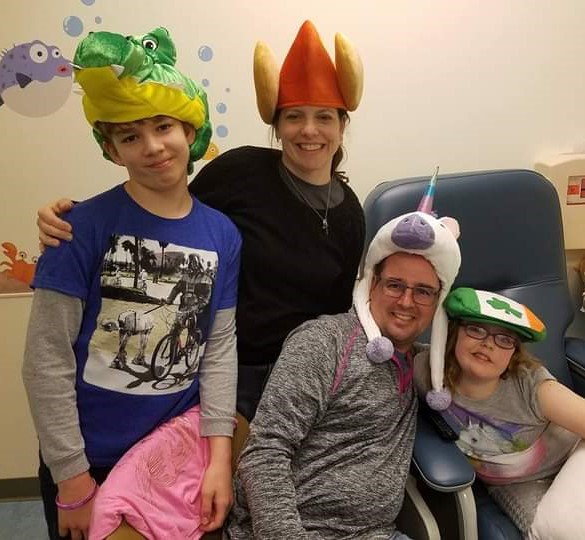
When asked about his family’s experience with pediatric palliative care and hospice care, Trey answers honestly, “We experienced mostly amazing things. On the other hand, there were times when the care could have been better.”
With some children’s health systems, Emilie received coordinated palliative care with medical, psychological, and spiritual providers that supported her and the whole family. However, some providers struggled to appropriately communicate with a pediatric patient and family facing a terminal cancer diagnosis.
When Emilie entered hospice, there were additional challenges. While Trey describes the hospice staff that cared for Emilie the hospice staff as “wonderful people,” they were not adequately prepared for a 10-year-old. Their equipment was sized for adults, not children.
“Emilie’s illness felt like a race in many ways,” Trey recalls, “At one point during that race, someone asked me about how things were going, and I replied that I don’t like to lose.”
After Emilie’s death, the Gibsons were left exhausted and searching for meaning. They were determined to continue Emilie’s legacy. “My wife Candi and I just decided that we needed to keep running. We needed to contribute. We didn’t want our daughter to die in vain.”
Today, the Gibson family participates in a broad scope of activities to carry on Emilie’s legacy. From raising funds as a chapter of The Cure Starts Now organization, to running an annual childhood cancer float at the Shreveport Highland Parade, to supporting other families who are facing similar battles, the Gibsons keep Emilie’s story alive.
One way Trey makes a difference is through legislative advocacy. Active at the state and federal level and as a member of the Louisiana Palliative Care Advisory Council, Trey advocates for better access to palliative care, particularly for children.
Trey explains that children and adults with cancer endure fear, painful treatment, and a loss of normal life. “Whatever a doctor is prescribing, it’s not enough for what a patient needs. Otherwise, it’s easy to slip into emotionally draining things that prevent a patient from getting better.”
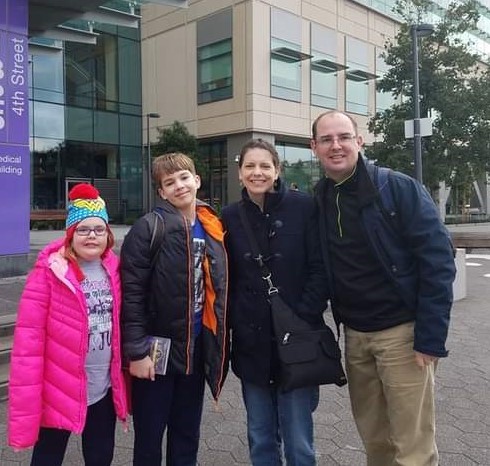
Through advocacy efforts, Trey has found a path forward with his loss. “I’ve got purpose. I like fighting for a good cause and feeling like I’m doing something that can help. Childhood cancer? I can’t find a better cause than that.”
Today, Trey keeps up to date with and advocates for policies that could have prevented the problems his family encountered, such as better education throughout the healthcare system about palliative and hospice care.
Trey points to the Palliative Care and Hospice Education and Training Act (PCHETA) as legislation that, if passed, could make a big difference for patients and families.
PCHETA (S. 2243) is a priority legislative package for palliative and hospice care. It would ensure the expansion of palliative care training for healthcare professionals and improve awareness of palliative care benefits and services throughout the healthcare system and the larger public.
“Real palliative care education would make a difference,” Trey says, “We’ve got a lot of work to do still, and PCHETA’s the start.”
But being an advocate can be challenging, Trey admits. Some bills that he has passionately advocated for, including PCHETA, have not yet passed.
“It’s hard. Because I haven’t won yet. If there’s anything that drives me, it’s that the job’s not finished.”
But there have been incremental victories along the way.
Since it was first introduced to Congress in 2012, PCHETA has become a more expansive, inclusive bill thanks to contributions from advocates like Trey.
“Maybe my advocacy was a tiny cog in the wheel,” he concedes.
To those who have experienced loss and are considering advocacy, Trey encourages, “Your stories are needed. You matter. But do it at your own pace, when you’re ready to talk. And if you choose not to, that’s okay too.”
As a part of our interview, Trey provided advice to new advocates who have experienced loss. See our second part of this story here.
For more:
Sign up to be a HAN advocate today
Take action and support PCHETA
Find advocacy tips on our Toolkit page


